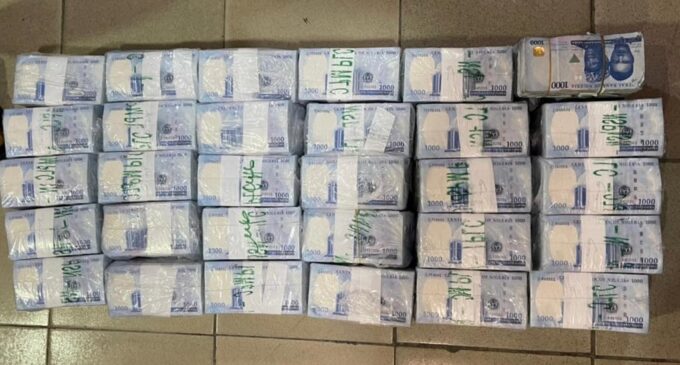By Aaior K. Comfort
Nigeria’s broad money supply (M2) surged by 62% year-on-year to reach N107.2 trillion in August 2024, up from N66.19 trillion in the same month of 2023. This increase reflects significant changes in the economy’s aggregate money supply, which consists of quasi-money and narrow money supply.
Quasi-money, including savings and time deposits, grew dramatically by 75.2% year-on-year to N72.2 trillion, rising from N41.2 trillion. Meanwhile, narrow money supply (M1) increased by 43% to N34.9 trillion, up from N24.4 trillion in August 2023.
This rise in money supply occurs amid ongoing economic hardships, particularly affecting low-income households. The Central Bank of Nigeria (CBN) released data indicating that M2 has been on the rise following a temporary decline recorded in March 2024.
The report attributed the increase in M2 primarily to heightened domestic borrowing by the government from the private sector. Demand deposits in banks saw a 40% increase year-on-year, reaching N31.08 trillion, up from N22.2 trillion. Additionally, the currency outside banks rose by 77.2% to N3.9 trillion, compared to N2.2 trillion a year earlier.
Professor Nwokoma Ndubisi, an economics expert at the University of Lagos and Director of the Center for Economic Policy Analysis and Research (CEPAR), commented on the situation. He noted, “The government has been borrowing extensively, resulting in a substantial domestic debt. This includes treasury bills and other financial instruments that the CBN must pay to acquire. The transactions in the government domestic credit market significantly influence the money supply.”
He further explained, “These operations impact the financial system. If not managed properly, they can lead to inflationary pressures within the economy. There has been a high tempo of public borrowing in the domestic market.”
The CBN’s data also revealed that credit to the government increased by 38.4% year-on-year, reaching N31.15 trillion in August 2024, compared to N22.5 trillion in the previous year. This highlights the government’s growing reliance on domestic borrowing to fund its operations amidst a challenging economic landscape.

